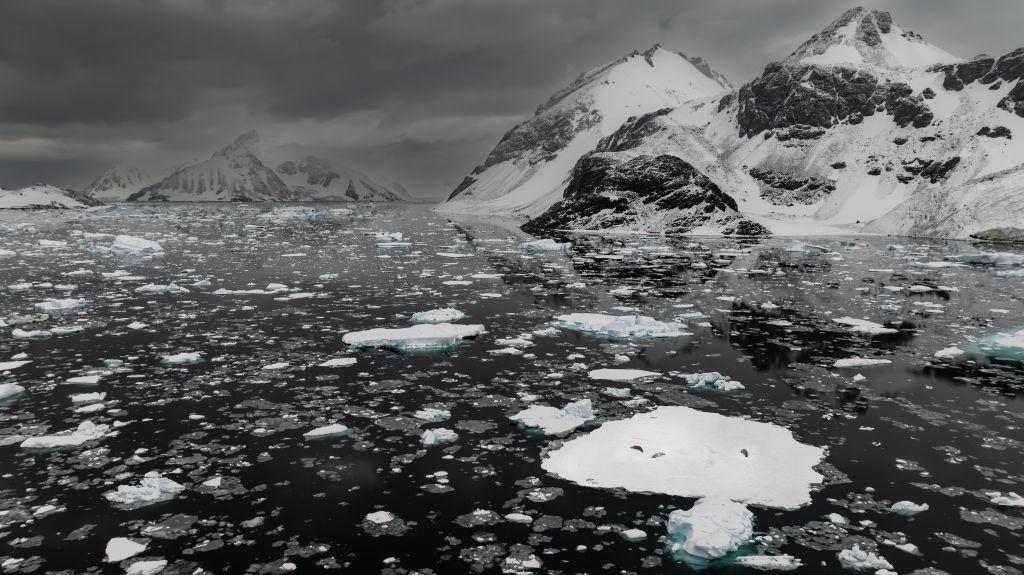
Our domestic discourse on the geopolitics of Antarctica is shamefully shallow. Our attitude continues to be one of ‘there’s nothing to see here’. Our vital interests, including the defence of Australian sovereign territory, are at stake, but everyone appears happy to pass the problem on to the next government.
Canberra has a national interest in Antarctica—a claim to 42 per cent of the frozen continent. Yet successive Australian governments have overlooked Antarctica. We’ve even launched a National Defence Strategy that makes no reference to our sovereign Antarctic territory.
Real-time testing of the rules-based order is under way in Antarctica. Earlier this month, the Antarctic Treaty Consultative Meeting quietly wrapped in India. No consensus was achieved for new environmental protection zones, or the addition of new voting parties. For the first time since 2022, no reference was made to the Russia-Ukraine war in the meeting communique.
The Antarctic Treaty System is in limbo. It fails to reach consensus on practically everything it was crafted to do. Yet the system shows no indication of imminent collapse. The treaty remains intact because it facilitates strategic competition.
The fact the Antarctic Treaty System has not fallen apart is not indicative of its success. The maintenance of this treaty system speaks more to its agility to deliver on a vast array of national interests—for a vast array of actors. States such as Australia, the US, Russia, Ukraine and China are all seated at the same table as equals in Antarctica.
Australia continues to approach Antarctica in a haphazard manner. Canberra takes for granted the enduring treaty system and government maintains an optimistic view of international law in contemporary politics. International law is about interpretation. States have creatively interpreted Antarctica’s treaty protocols, just look to the proliferation of dual-use capabilities on the continent.
China has five research stations there, three of which are in Australian Antarctic Territory. These feature satellite ground stations and technology Beijing insists is deployed in support of its scientific activities in Antarctica. Such capabilities fall under China’s civil-military fusion law, which mandates that all research platforms have military-strategic relevance. China’s interpretation of what is deemed ‘scientific research’ on the continent falls well within the treaty bounds.
Instead of bolstering our capacity to monitor or engage with China on our neighbouring continent, Canberra remains missing in action. We lack both strategy and capability to adequately defend a vital national interest. The recent parliamentary review into the adequacy of funding for the Australian Antarctic Division exposes the dismal state of our commitment. Numerous scientific programs have been cut due to budget pressures.
Resupply of critical food and medicines to our expeditioners in isolated stations is no longer ensured. The Department of Foreign Affairs and Trade is boasting a meagre Antarctic capability with a team of four people, some of whom are working part-time, representing the international diplomatic and legal interests tied to a claim equating to about the size of Australia.
So, what can government do? Start by mirroring competitive behaviours: reinvest in our research stations and get serious about strategic science by funding it appropriately. Cultivate a national Antarctic interest and identity—make the Australian Antarctic Territory worth fighting for.
Australian governments must acknowledge that strategic intent can change overnight—but capability cannot. Our navy’s future fleet features no ice-hardened vessels. Our sole icebreaker—Nuyina—is overburdened with duties. And in trouble. Due to access restrictions on passing under the Tasman Bridge in Hobart Nuyina is unable to refuel at her home port.
Ongoing industrial action further undercuts Nuyina’s ability to reliably operate, with her crew often on strike due to pay conditions. We have no redundancy when it comes to icebreaker capability. The global icebreaker rental market is grim—with our go-to ‘backup’ option, Aiviq, recently secured for the foreseeable future by the US Coast Guard.
Our Antarctic absence has been cultivated by a narrow-minded characterisation of strategic competition. Antarctica is apparently ‘sorted’ because the treaty holds. This could not be further from reality. While boots on the ground may not be needed any time soon, some states are actively undermining and changing the status quo in Antarctica.
Our national strategic discourse continues to regurgitate negligent assumptions of past governments when it comes to Antarctic geopolitics. Perhaps this is not a bad thing. After all, it’s not as if we have the capabilities required to really promote or secure our vital national interests in Antarctica anyway.